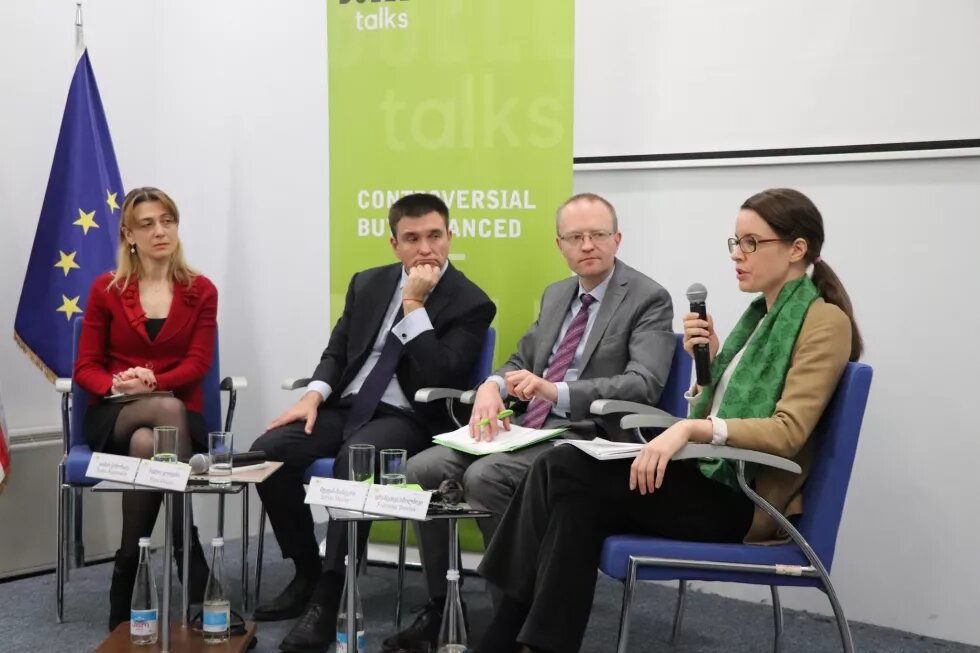
On December 5, 2019, Heinrich Boell Foundation Tbilisi Office hosted the public discussion:
The International Dimensions of Regional Conflicts: The cases of Georgia and Ukraine.
At the public discussion, we discussed the following issues: Georgia's expectations from the conflict-relevant Western actors, the current situation in Donbas, how are the conflicts in Georgia reflected on the international stage and how can Ukraine and Georgia use international platforms to address their needs?
Invited Speakers were:
Franziska Smolnik, Deputy Head of Research Division - Eastern Europe and Eurasia, German Institute for International and Security Affairs;
Tamar Kochoradze, Head of Department for Policy Analysis, Planning and International Relations, Office of the State Minister of Georgia for Reconciliation and Civic Equality;
-Tamar Kochoradze - How are the conflicts in Georgia reflected on the international stage - Heinrich Boell Foundation South Caucasus
 Watch on YouTube
Watch on YouTube
Pavlo Klimkin, Diplomat, former Minister of Foreign Affairs of Ukraine (2014 – 2019) were among the invited speakers.
Pavlo Klimkin: The International Dimensions of Regional Conflicts: The cases of Georgia and Ukraine - Heinrich Boell Foundation South Caucasus
 Watch on YouTube
Watch on YouTube
Post-Soviet conflict zones have internal and external dimensions. Internally, countries have to deal with the IDPs, a constant threat of spillover effects from the disputed territories and the human dimension of conflicts. Externally, other players use these conflicts to manipulate and control the affected countries.
The annexation of Crimea and the war in Donbas has been conceived in Georgia as the continuation of Russia’s involvement in conflicts in the post-Soviet states, especially in Georgia since 2008. There is this argument that, in the case of Donbas, Russia created conflict to prevent Ukraine from integration with NATO and the EU. It has been discussed, that the lack of Western sanctions against Russia in 2008 taught Moscow that small wars in the post-Soviet neighborhood will not provoke a large reaction by the West. Despite a more comprehensive reaction from the West in the case of Russia’s actions in Ukraine, which has resulted in the creation of the Normandy format and sanctions against Russia, there is a lack of ideas on how international engagement and formats can help to solve conflicts. Many formats seem to work around the conflict, they are platforms for exchange, which is important, but they often do not help to solve the conflicts.
This event was organized in the framework of Heinrich Boell Foundation's format Boell Talks, which aims to hold public discussions with civil society representatives, experts, and decision-makers on the topics of relevance for Georgia and the South Caucasus.